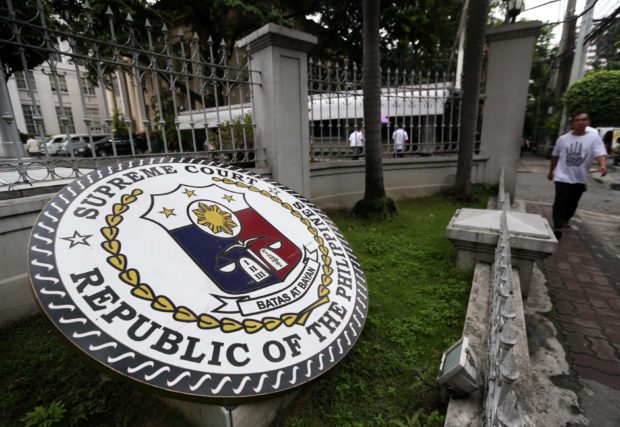A House of Representatives subcommittee has proposed the removal of the judiciary’s power to determine “grave abuse of discretion” in government actions and policies.
According to a list of salient provisions furnished to reporters by the House media bureau, the subcommittee cited “judicial overreach” in clipping the courts’ powers by deleting an entire phrase from Section 1, Article VIII of the 1987 Constitution.
The deleted phrase stating the courts can “determine whether or not there has been a grave abuse of discretion amounting to lack or excess of jurisdiction on the part of any branch or instrumentality of the Government.”
Under the subcommittee proposal, the constitutional clause would only read: “Judicial power includes the duty of the courts of justice to settle actual controversies involving rights which are legally demandable and enforceable.”
Grave abuse of discretion is commonly defined as the “whimsical, arbitrary, or capricious exercise of power.” Such actions by a judicial or quasi-judicial tribunal or officer may thus be questioned through a petition for certiorari under Rule 65 of the Rules of Court.
Despite being an official document, Deputy Speaker Fredenil Castro, the chair of the subcommittee on judiciary-related amendments, denied the proposal was ever taken up for consideration.
“In my subcommittee, never. In the Mother Committee, I don’t think so,” Castro said in a text message.
“Not much amendments/changes have been proposed except [the creation of] regional [Courts of Appeals] and abolition of [the Judicial and Bar Council] to be substituted by the Prime Minister and Commission on Appointments,” he added.
Meanwhile, the mother committee chairman, Southern Leyte Rep. Roger Mercado, said over the phone that the subcommittee’s proposal was not yet final and would still be “subject for purification through public debate.”
Removing the power to look into grave abuse of discretion would be “very significant in the sense that it lessens the power of the judiciary to inquire into acts of the other agencies,” Integrated Bar of the Philippines national president Abdiel Dan Fajardo said in a text message.
“The power of review over lower courts will continue. The removal will only reduce so-called intrusion by the judiciary into discretionary acts of the other branches,” Fajardo said, referring to the executive and legislative branches of government.
“It really is a question of whether [Congress acting as the Constituent Assembly] wants a strong or weak judicial department,” he added.
It would also likely lead to broadening of the President’s discretion in declaring martial law once the provision is taken out. “Certain steps towards declaration may no longer be reviewed because they may be classified as political questions so that judges may no longer reverse or revise them,” Fajardo said.
Members of the left-wing Makabayan bloc condemned the subcommittee’s proposal as yet another showing of the Duterte administration’s supposed tendency towards dictatorship.
Anakpawis Rep. Ariel Casilao said the proposal was “a clear attack on the principle of accountability” so the proponents could be “free in their unlimited abuse of power.”
Bayan Muna Rep. Carlos Isagani Zarate said the proposal aimed to “emasculate and weaken the power of the judiciary as co-equal branch of government.”
Kabataan Rep. Sarah Jane Elago called it a “move to further cement Duterte’s dictatorial rule.” She said “the executive will be free to do whatever he wants without fear of legal persecution, and lesser eyes on accountability lead to greater chances of abuse of power.”
The Corpus Juris, a website featuring legal resources, said in its Twitter post that the proposed deletion “stood out from the rest” of the numerous contentious amendments floated during a Tuesday committee hearing.
“If I had a dollar for every time that the grave abuse clause helped serve substantive justice…,” it quipped in a Twitter post.
